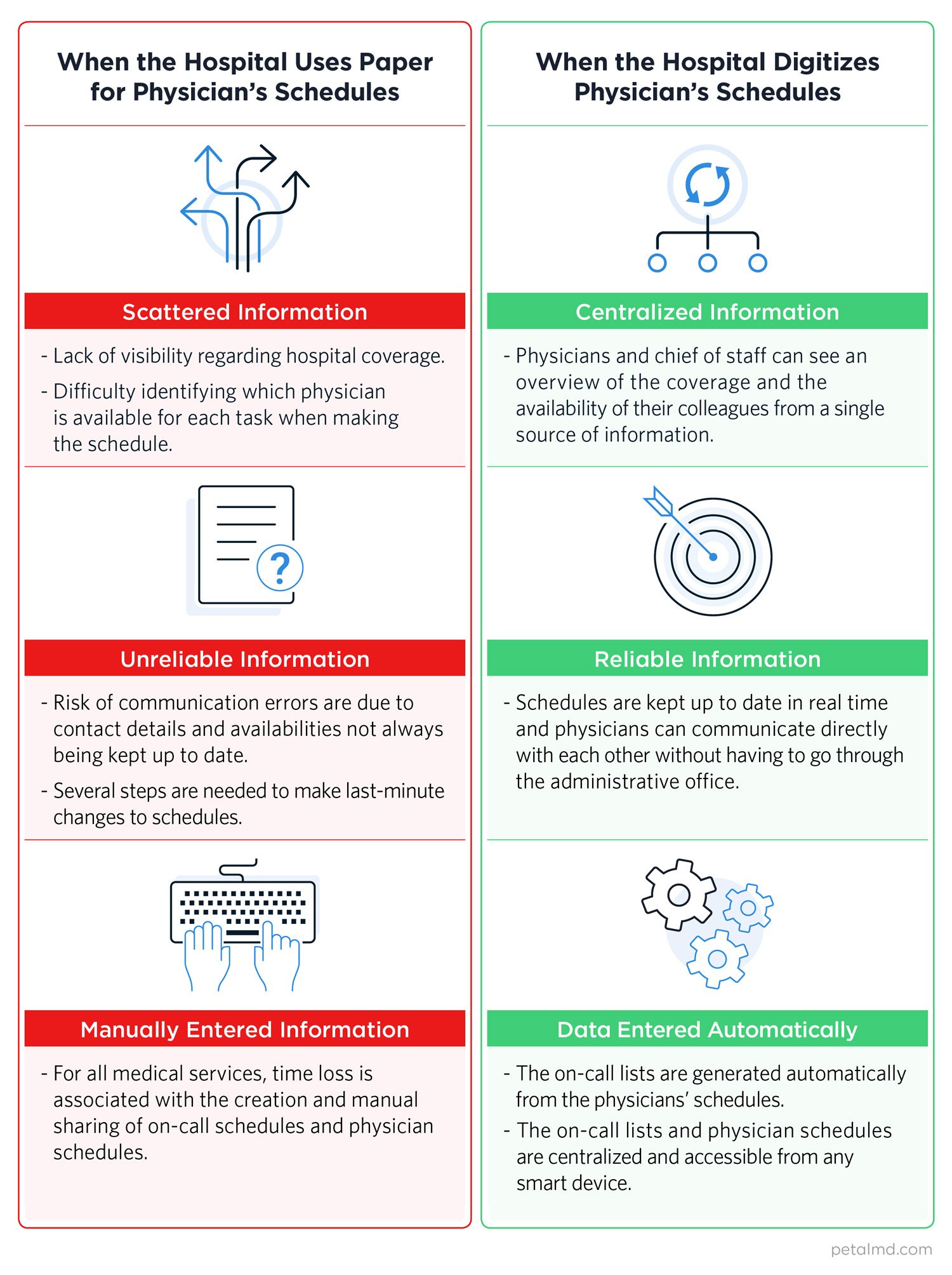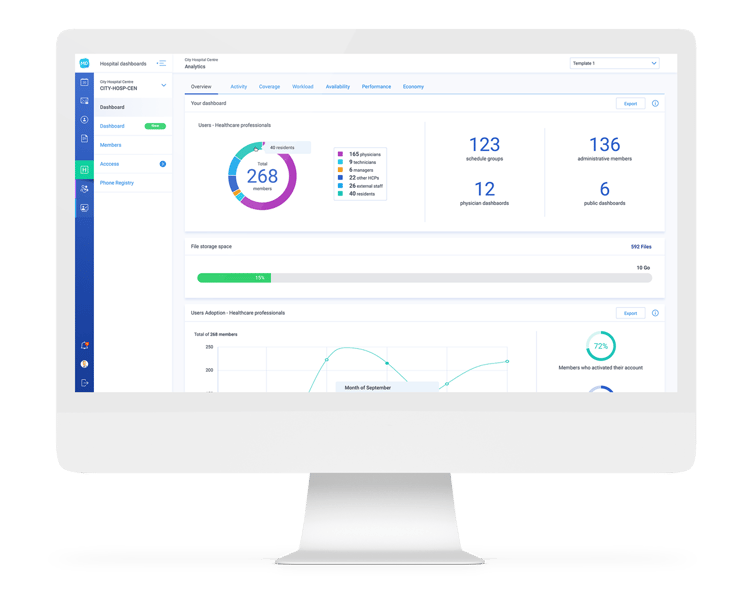
Did you know that in some hospitals the call centre can handle up to 350 calls per hour? Every day, doctors must call operators to reach their colleagues or to obtain information about clinical schedules or the on-call list, for example to get a replacement or to report a problem about a patient.
Because doctors are not always available to receive calls, operators are then forced to leave voice messages or pager alerts. This results in unnecessary work that waste valuable time for both physicians and administrative staff, ultimately generating additional processing times for patients.
See Also : 
Dispersal of Information in Hospitals; A Bigger Problem than it Appears
The reason why hospital call centres are so busy is simple: callers need information that they do not have access to easily. Often, this information concerns the coordinates, or the availability of the scheduled physicians, information which changes continuously, and which is dispersed throughout the different medical services. The problems caused by the dispersal of information in hospitals, however, are not limited to the loss of time caused by the back and forth between doctors, telephonists and administrative staff. This also affects many other aspects of a hospital’s performance and harms many of its stakeholders, sometimes even its patients.

A Sample of Problems Experienced in Hospitals Where Doctors’ Schedules are Not Centralized
- The Medical Affairs has difficulty in easily guaranteeing full coverage due to the lack of a daily overview of on-call schedules.
- Hospital Managers do not have access to reliable and up-to-date information of on-call coverage and physician duties to effectively improve the existing processes.
- Physicians who want to make a change to the schedule must go through a complex process rather than directly consulting the availability of their colleagues and communicating with them autonomously.
- The Administrative Staff must manually create the on-call list from the different on-call schedules, which requires a lot of time and involves the risk of errors, especially during changes.
- Nurses need to communicate with different stakeholders to access physician contact information and availability, which creates additional communication delays.
-
Patients must wait longer before being treated when hospital staff have difficulty reaching the doctor on-call. This can put patient safety at risk in certain emergency situations.
Centralize Information to Improve Hospital Performance
Luckily, it is possible to significantly reduce the loss of time, confusion, and delays in communication, as well as other issues generated by the dispersal of hospital information by making: physician availability, up-to-date contact information and on-call lists easily accessible. To achieve this, however, it is necessary to digitize and centralize physician schedules.

The First Step: Choose a Reliable Computerized Solution
Before taking the necessary steps to digitize and centralize the clinical and on-call schedules of your hospital, it is important to select a computerized solution that meets certain basic criteria. Ideally, the solution should allow you to:
- Automatically centralize doctor schedules from the different medical services.
- Easily generate and distribute an on-call list that is accessible from mobile devices.
- Configure the access and modification rights to the on-call list according to the reality of your hospital, including the roles and responsibilities of each participant.
- Display information adapted to the different stakeholders of the hospital according to their access rights.
- Access key data for on-call coverage and physician schedules through analytical dashboards and statistical reports.

